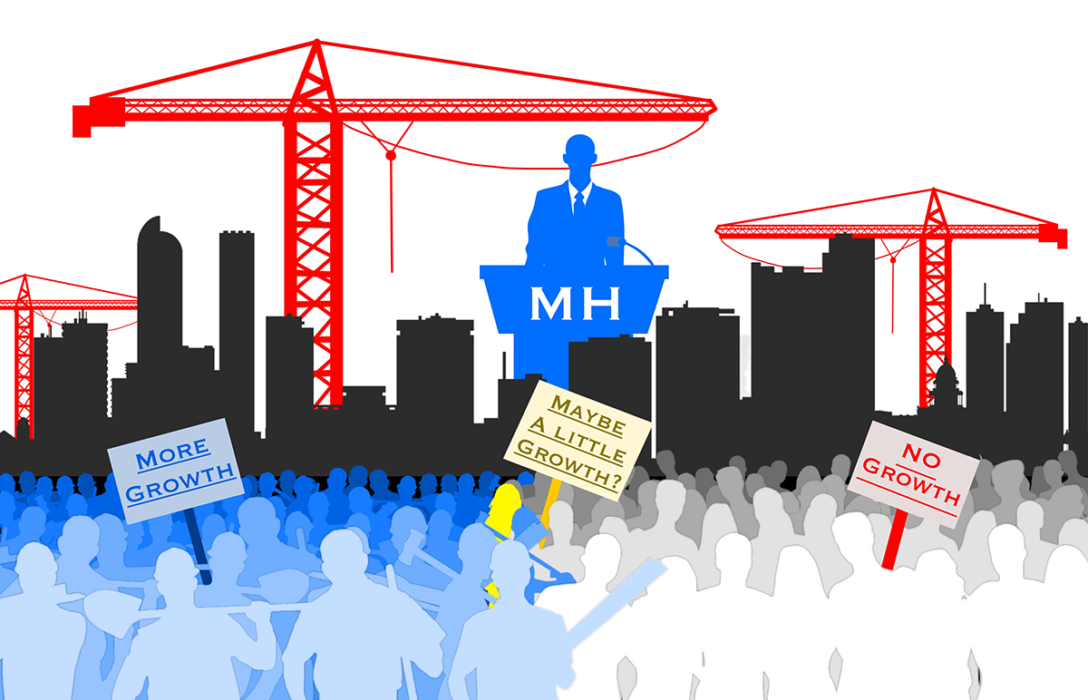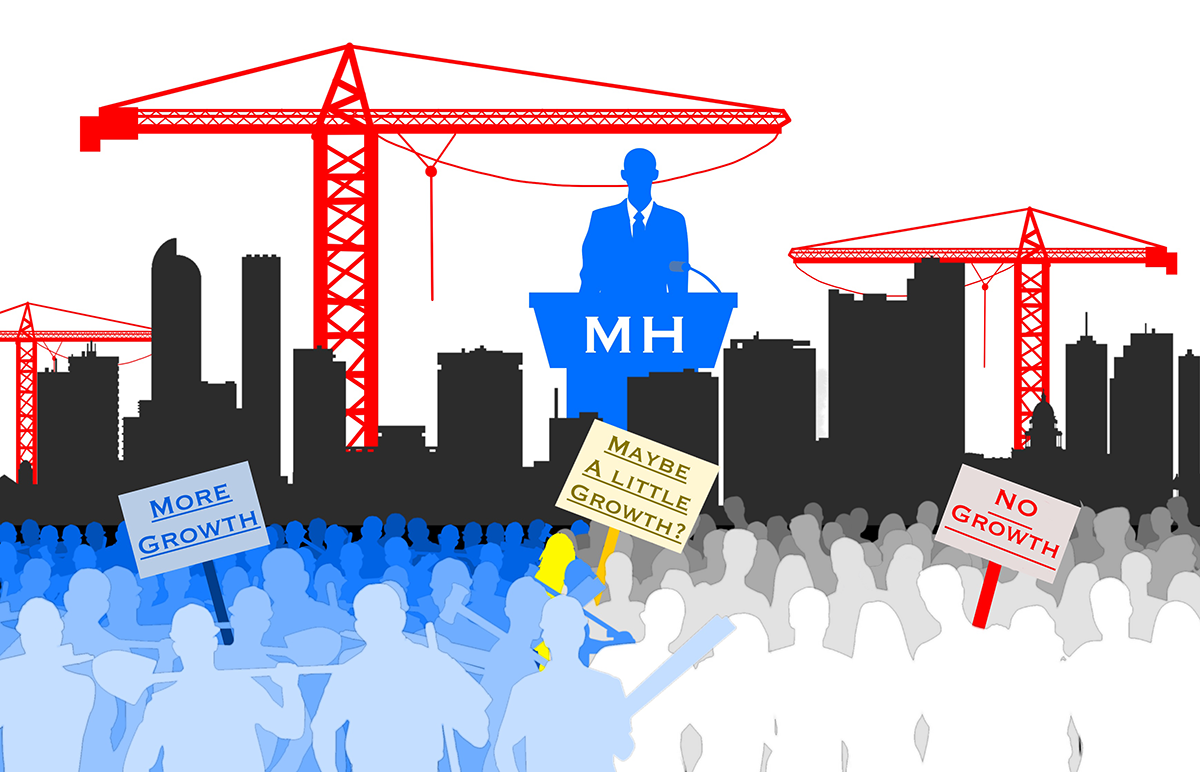
Denver Mayor Michael Hancock may have won reelection for a third and final term June 4, but his near loss and the unseating of three incumbent City Council members sent a clear message that Denverites aren’t necessarily satisfied with the status quo.
“I think [Hancock] has to have seen that Denver voters really are concerned about where the future is headed,” said Dick Wadhams, former chair of the Colorado Republican Party. “[Voters] don’t like the dramatic changes that are happening in the city with this seemingly unchecked development. I think there’s a concern about the safety of the city. They want the mayor to be more engaged in these issues.”
Denver, like many Western cities, is feeling the adverse effects of progress: endless construction, rising home prices combined with a lack of affordable housing, increased traffic and congestion, a growing homeless population — the list goes on. Those issues proved critical in this year’s municipal elections, and the race in Denver may foreshadow the tough conversations that await nearly 20 major Western cities holding mayoral elections over the next two years.
According to the U.S. Census Bureau’s latest estimates, Denver saw the ninth-largest population increase in 2018. It’s unsurprising, then, that the election became a standoff between Hancock, who has overseen the city’s economic boom, swelling population, and low unemployment rate for the past eight years, and political newcomer Jamie Giellis, an urban development consultant who campaigned on greater neighborhood control over the city’s growth planning.
After a general election on May 7, in which Hancock received just 39 percent of the vote (his three biggest challengers — Giellis, Lisa Calderón, and Penfield Tate — combined to pull in 58 percent), the incumbent earned 56 percent of the vote in the runoff. The result stands in stark contrast to four years ago, when 80 percent of voters delivered Hancock a dominating win in the general election. In the interim, however, he has been denigrated by those worried about the city’s affordability and rising homelessness.
“I think [the close race] means that there is a significant chunk of this city that is really frustrated and feels unheard,” Giellis said in an interview with Denverite following the runoff.
For his part, Hancock says he has heard his constituents, even those who did not vote for him. “It’s not a matter of too much growth — it’s a matter of how we grow. What we can do better is ensure there is growth with justice,” he wrote in an email to Bitterroot. “That means equity, affordability, and opportunity for families of all means to have a home and build a future in Denver. It also means better connecting with parts of our city that do not feel heard. I want to honor the concerns of those residents who do not feel engaged and find ways to better connect with them in their neighborhoods.”
Of course, growth isn’t all bad. More jobs, better salaries, higher property values, and a more robust food and culture scene can all benefit residents and local businesses. During Denver’s election, though, the positives seemed to be lost in the conversation.
“One of the things the results tell me is growth is a mixed bag,” said Paul Teske, dean of the University of Colorado Denver School of Public Affairs. “I don’t think the election results tell us the anti-growth people won or the pro-growth people won. It depends on the candidates and the parts of the city.”
While the mayor kept his job, for example, three incumbent City Council members, all in quickly changing districts, lost theirs in the runoff, which The Denver Post dubbed “an unprecedented number in the last three decades of city elections.” Among them is Albus Brooks, a former Council president who was seen as a potential successor to Hancock.
“While Hancock won reelection, he’s now going to be partnered with a very changed political environment,” said Floyd Ciruli, an independent pollster in Denver.
What Denver experienced last month could await cities such as San Diego, Boise, and Portland that are set to choose mayors in the next two years. “A lot of cities in the West are growing and want to grow for a whole variety of reasons,” Teske said. “The lesson, politically, is you need to pay attention and work on [these issues] as much as you can while you’re enjoying the growth.”
Growth and development were expected to be critical issues this election cycle. What wasn’t foreseen was the negative turn the Giellis and Hancock campaigns took between Denver’s general and runoff elections. Giellis revisited a scandal in which the mayor sent sexually explicit text messages to a Denver police detective in 2012. On the campaign trail, she said Hancock’s administration fostered a “culture of sexual harassment.” Meanwhile, Hancock, who is black, jumped on a gaffe by Giellis — her inability to recall what NAACP stands for (the National Association for the Advancement of Colored People) — to call her out for racial insensitivity.
Analysts don’t think those incidents really impacted the outcome, though, crediting Hancock’s win to his robust coffers (he raised more than $2 million) and eight years of experience. What’s clear, they say, is that concerns over the rapid changes overtaking cities are top-of-mind for voters, and Denver’s won’t be the last mayoral race to center on the issue.
“The growth has been so strong and so powerful that it’s really changed people’s viewpoints,” Ciruli said. “At some point, you have to have some policies that empower the ‘no’ side of this argument. … Otherwise, incumbent politicians could lose their jobs.”

